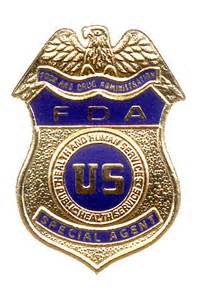In early August 2016, FDA issued a Guidance document for “Insanitary Conditions at Compounding Facilities” that states that under Section 501(a)(2)(A) of the FD&C Act that any drug prepared under insanitary conditions is adulterated. This document defines a drug as any compounded human or animal drugs; repackaged drug products; compounded or repackaged radiopharmaceuticals; and mixed, diluted, or repackaged biological products.
Unlike other Guidance documents issued by FDA for compounders under Sections 503A and 503B of the FD&C Act, of note to compounders is that the policies described in this Guidance document cover pharmacies, Federal facilities, physicians’ offices (including veterinarians’ offices), and outsourcing facilities that compound or repackage, or repackage human or animal drugs (including radiopharmaceuticals), or that mix, dilute, or repackage biological products.
FDA is issuing this Guidance so these entities can self-assess whether they are conducting the covered activities under insanitary conditions, and also to alert State Boards of Pharmacy as to what FDA considers insanitary conditions, so they can implement corrective actions before the conditions result in contamination and patient injury.
FDA states that they have identified insanitary conditions at many of the compounding facilities they inspected, but that they do not inspect the vast majority of the 4500+ compounding facilities in the USA that do not register with FDA (unless they intend to become outsourcing facilities).
What can lead to an FDA inspection of compounders? Typically, FDA is unaware of many of the compounding facilities, but becomes aware by complaints of visible contamination, adverse events, product quality complaints, reports of serious adverse events or deaths (humans and animals), or other contacts by patients, consumers, and/or healthcare providers.
There have been over 150 Warning Letters issued to compounders in the last 5 years, and many have gone out of business due to the inspectional findings and lack of appropriate corrective actions to resolve the insanitary conditions.
Note that FDA, in this Guidance, states that the principles to eliminate insanitary conditions apply to non-sterile and sterile preparations, and that these conditions include, but are not limited to: vermin in the facility; visible microbial contamination; non-microbial contamination, such as rust, dust, hairs, glass particles, etc.; handling beta-lactams and/or potent drugs without proper segregation and cleaning, and conducting compounding while construction is underway without appropriate controls.
For aseptic/sterile compounding, FDA requires proper aseptic technique; proper gowning, including use of sterile garb and gloves; frequent disinfecting or changing of sterile gloves, appropriate control over not exposing compounded preparations outside of an ISO 5 area; disinfecting all materials before entering the ISO 5 or surrounding areas; and placement of materials or components as to block the unidirectional flow of filtered air. For facilities and equipment, FDA is looking for adequate design with easily cleanable surfaces, HEPA filtered air, sealed ceiling tiles, pressure differentials between rooms in the aseptic core with mechanical monitoring and alarms, no drains or sinks in the cleanroom where the ISO 5 area is located, and designs for proper material and people flow. For sterilization, FDA expects that final filters are validated and are of pharmaceutical grade, and that terminal sterilization processes are validated. Disinfectants, pads, wipes, and cleaning agents are to be sterile and should be used with appropriate contact/dwell times.
FDA recommends that both registered Outsourcing Facilities and any compounding facility producing compounded sterile products conduct daily environmental monitoring during operations and to certify ISO 5 areas every 6 months or more frequently. FDA also requires the monitoring of pressure differentials during operations and for firms to conduct media fill studies using worst-case activities.
FDA states that all compounding facilities should assess if they are operating under insanitary conditions and, if found, they should determine the impact of any insanitary conditions, determine whether to cease production until all the conditions have been corrected; initiate recalls of all potentially affected lots, and to notify FDA of the recall/s.
Additionally, if compounders find insanitary conditions, FDA states that the compounders should undertake a comprehensive assessment of their operations for facility design, procedures, personnel, training, processes, materials and systems, and should consider the use of a third-party consultant with the relevant drug production expertise to conduct the assessment and to assist in the implementation of corrective actions.
FDA further states that if a facility produces drugs under insanitary conditions, the facility and personnel may be subject to Federal actions, including, but not limited to Warning Letters, seizure of products, injunction, and/or civil and criminal prosecution.



